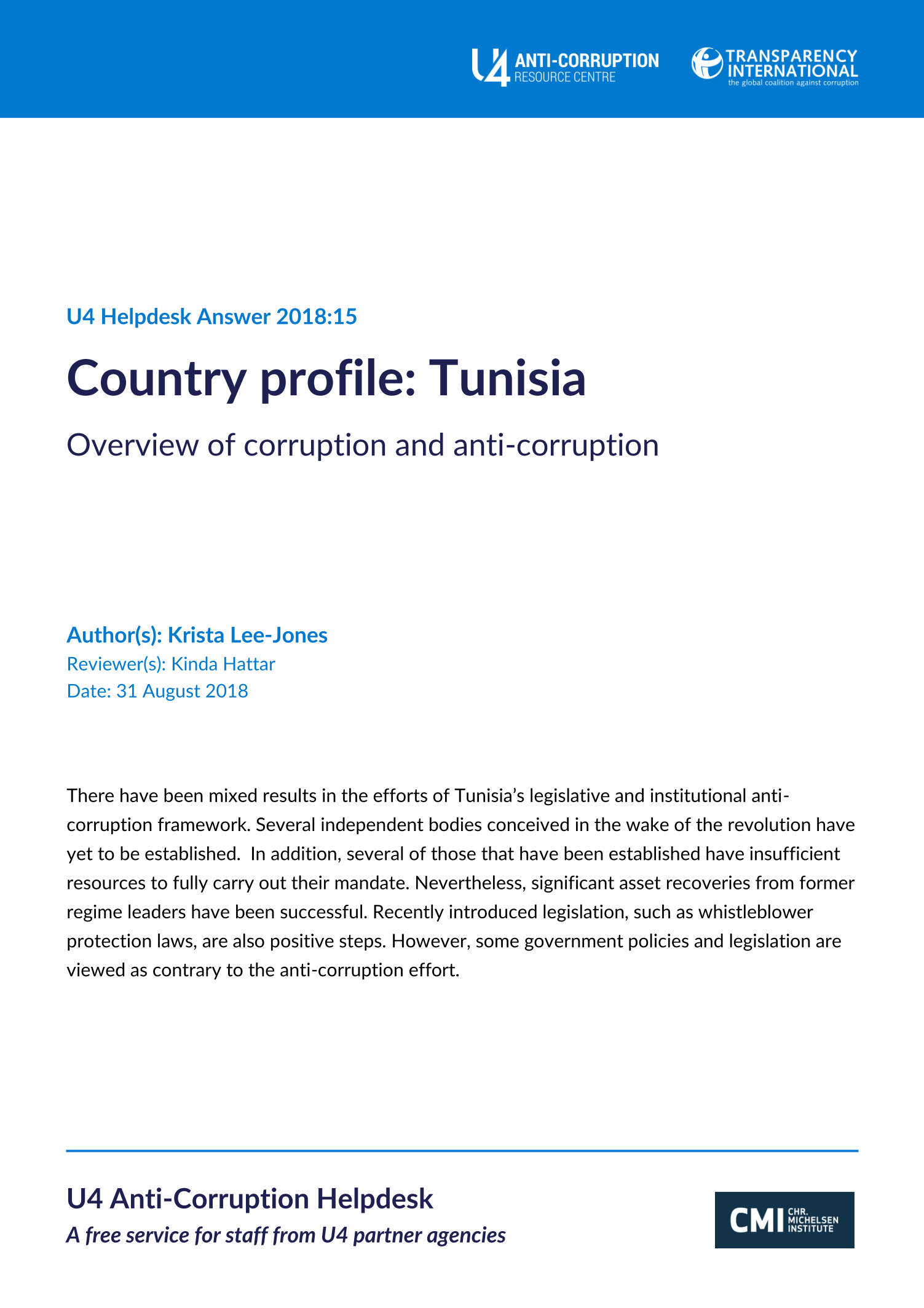Main points
- Corruption is still prevalent in post revolution Tunisia, although said to be democratised rather than centred around a few key individuals.
- Anti-corruption agencies have been established, but they lack the resources to effectively conduct their work.
- Important laws on access to information and whistleblowers have recently been passed. The effectiveness of these laws is yet to be seen.


